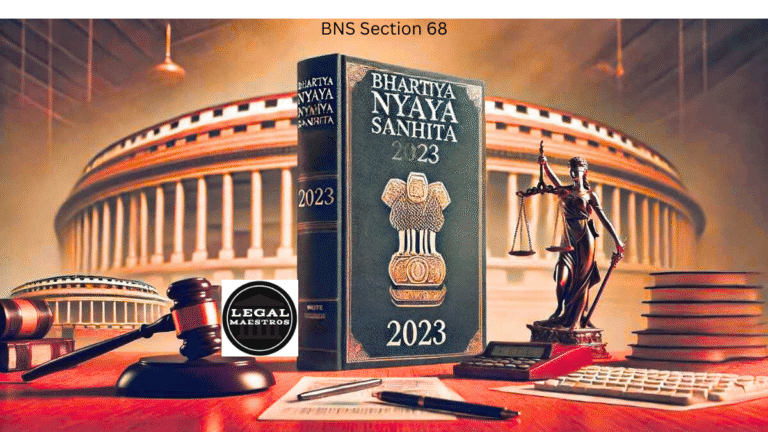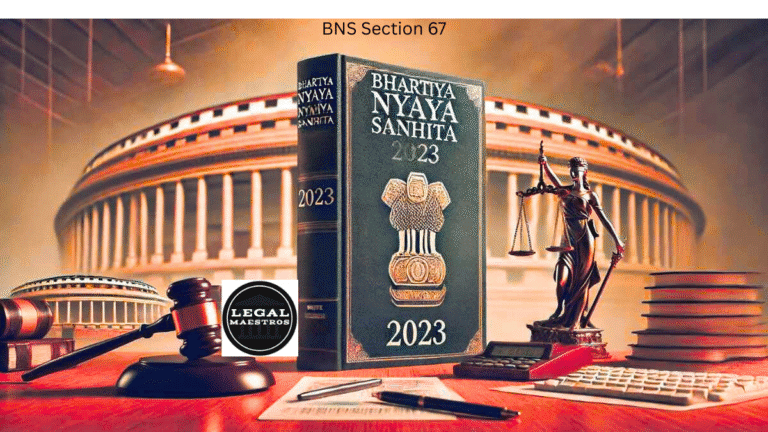
Section 50 of the Bharatiya Nyaya Sanhita, 2023: Punishment for Abetment When the Abetted Person Acts with a Different Intention
The Indian Penal Code (IPC) from 1860 has been replaced with the Bharatiya Nyaya Sanhita (BNS), which was published in 2023 and can be considered India’s revised criminal code. Section 50 of the BNS addresses situations where an individual abets an offence, but the person committing the act does so with a different intention or knowledge than that of the abettor.
What Does Section 50 State?
Section 50 stipulates that if a person abets the commission of an offence, and the individual who carries out the act does so with a different intention or knowledge from that of the abettor, then the abettor shall be punished as if the act had been committed with the intention or knowledge that the abettor possessed.
In simpler terms, the law focuses on the abettor’s intent. Even if the person who commits the act has a different motive or understanding, the abettor is held accountable based on their own intention.
For any queries or to publish an article or post or advertisement on our platform, do call at +91 6377460764 or email us at contact@legalmaestros.com.
Examples to Illustrate the Point
To better understand the application of Section 50, consider the following scenarios:
Example 1: A instigates B to commit theft from a warehouse, believing that the warehouse contains valuable items. B, however, discovers that the warehouse is empty but decides to set it on fire out of frustration. Here, A’s intention was to abet theft, but B committed arson. Since B acted with a different intention, A is punished as if the theft had occurred, based on A’s original intent.
Example 2: A encourages B to protest peacefully against a policy. B, during the protest, incites violence leading to public disorder. A’s intention was to abet a peaceful protest, but B acted with a different motive. In this case, A is punished based on the original intention of abetting a peaceful protest, not for the violence that ensued.
In comparison with the Indian Penal Code the following:
Section 50 of the BNS corresponds to Section 110 of the IPC. Both sections address situations where an offence is committed as a result of abetment, and the person committing the act does so with a different intention from that of the abettor. The primary distinction comes in the fact that the legal code has been updated and reorganized under the BNS in order to better conform to the requirements of modern-day law.
For any queries or to publish an article or post or advertisement on our platform, do call at +91 6377460764 or email us at contact@legalmaestros.com.
For More Updates & Regular Notes Join Our Whats App Group (https://chat.whatsapp.com/DkucckgAEJbCtXwXr2yIt0) and Telegram Group ( https://t.me/legalmaestroeducators )
Importance of Section 50
Section 50 ensures that individuals who instigate or encourage others to commit offences are held accountable based on their own intentions, regardless of the actual outcome or the differing intentions of the person committing the act. This provision upholds the principle that the abettor’s culpability is determined by their own mindset and purpose at the time of abetment.
Section 50 of the Bharatiya Nyaya Sanhita, 2023, reinforces the legal principle that abettors are accountable for their own intentions when encouraging or assisting in the commission of an offence. By focusing on the abettor’s mindset, the law ensures that individuals cannot evade responsibility simply because the person they influenced acted with a different motive. This provision strengthens the justice system by emphasizing personal accountability in the abetment of criminal act
For any queries or to publish an article or post or advertisement on our platform, do call at +91 6377460764 or email us at contact@legalmaestros.com.





![Research Assistantship @ Sahibnoor Singh Sindhu, [Remote; Stipend of Rs. 7.5k; Dec 2025 & Jan 2026]: Apply by Nov 14, 2025!](https://legalmaestros.com/wp-content/uploads/2025/11/Gemini_Generated_Image_s0k4u6s0k4u6s0k4-768x707.png)
![Karanjawala & Co Hiring Freshers for Legal Counsel [Immediate Joining; Full Time Position in Delhi]: Apply Now!](https://legalmaestros.com/wp-content/uploads/2025/11/Gemini_Generated_Image_52f8mg52f8mg52f8-768x711.png)
![Part-Time Legal Associate / Legal Intern @ Juris at Work [Remote]: Apply Now!](https://legalmaestros.com/wp-content/uploads/2025/11/ChatGPT-Image-Nov-12-2025-08_08_41-PM-768x768.png)
![JOB POST: Legal Content Manager at Lawctopus [3-7 Years PQE; Salary Upto Rs. 70k; Remote]: Rolling Applications!](https://legalmaestros.com/wp-content/uploads/2025/11/ChatGPT-Image-Nov-12-2025-08_01_56-PM-768x768.png)